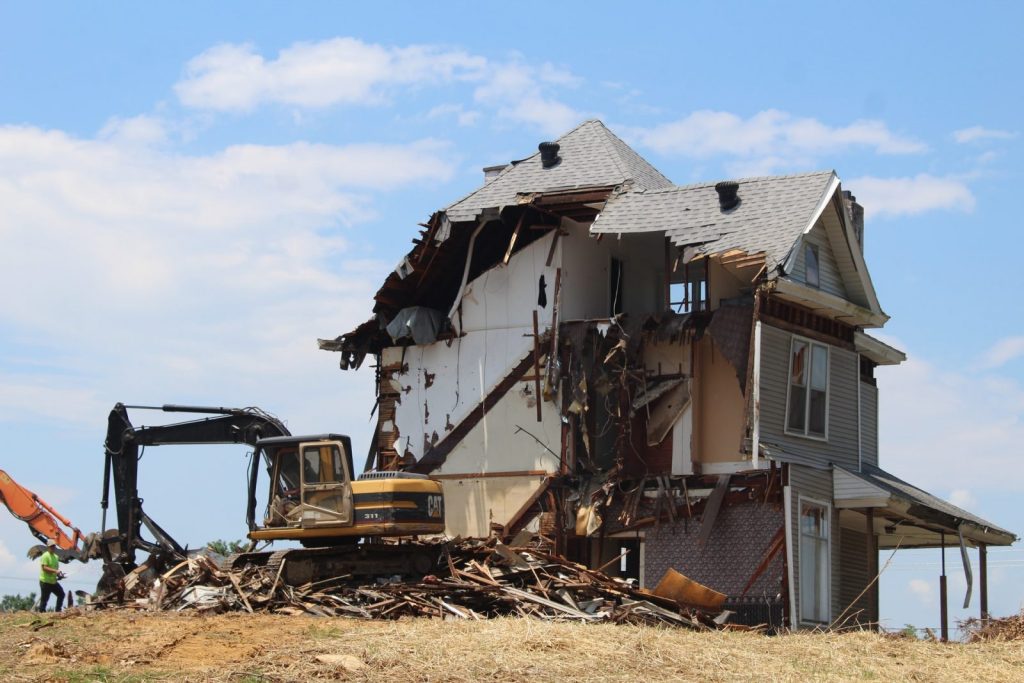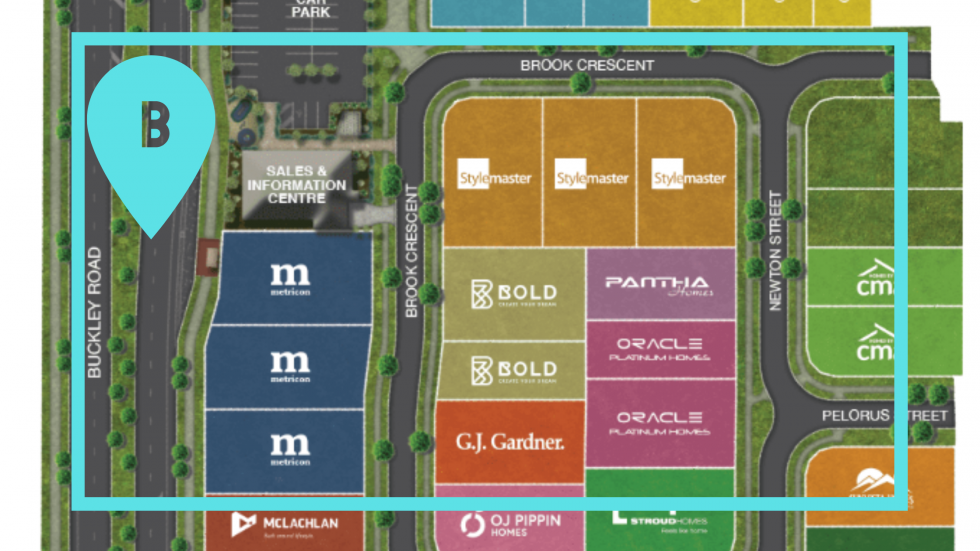Subdividing land can be a complex process with lots of approvals and costs to consider. In Queensland, expect to pay anywhere between $60,000-$90,000 to subdivide land. This price will vary dramatically depending on the size of your block, how many lots you’re planning to subdivide the land into and a variety of other factors. But where does all this money go? Let’s break down the costs involved in subdividing land.

What is subdividing land?
When we use the term subdividing land, we’re talking about taking an existing block of land and turning it into two or more smaller lots. As you may imagine, this is something you can’t just perform yourself. You’re going to need council approval and permission among other things.
The big question you need to ask is, ‘Is subdividing land worth it?”. It depends on your motivation for doing it. If you’re looking to turn a profit, subdividing land can lead to capital growth, whether you plan to sell one or more of the lots or rent them out (or both). You’ll need to factor in your development costs and the subdivision cost and try to figure out whether the profit you’ll make will eventually exceed the money you’ve put into the property.

What are demolition costs?
Demolition costs are any expenses involved with knocking down a previously existing structure. When subdividing land, you may be required to knock down existing structures to allow the creation of two separate lots.
Knocking down an entire house starts at around $10,000, but in most cases will be at least $17,000. With other factors such as travel, turning off services, and the complexity of the project, don’t be surprised if the price rises to as high as $30,000

What are surveying fees and how much do they cost?
Surveying fees will range in price depending on the type of survey (or surveys) you need to be done. Some of the most common types of survey and a rough estimate of the cost include:
- Topographical survey: $350-$10,000
- Subdivision survey: $2,000-10,000
- Contour survey: $1,000
- Fence survey: $500
For any of the above, you’ll need to hire a land surveyor, civil engineer or structural engineer.

What are planning fees?
Like any construction process, you’re going to have to run your subdivision plans by your local council. With this will come the need for approvals and fees needing to be paid. Expect planning fees to set you back around $10,500 for an average sized block.

What soil testing costs are involved?
Soil tests are an essential step in any construction process that requires foundational work or will interfere with the soil. It’s wise to get a soil test when you’re first interested in a block of land, before building and after any major disturbance to the land. A disturbance could be anything from demolition, excavation, soil being flattened or anything that affects the land.
A soil test will cost you around $350 and can be performed by a soil technician, structural engineer or geologist.

What are the town planning fees?
Once surveys are done, your surveyor will pass the information along to a draftsman to draw up the information, which will cost you about $4,000. You’ll also need to hire a local town planner who will help you prepare a town planning report and help you with professional advice throughout the subdivision process work.

What are infrastructure charges?
In Queensland, expect to pay around 28,000 in infrastructure fees per block. Infrastructure costs include the essential structures for water, stormwater drainage design, an underground drainage system and other services.

Title Registration Fees
The fees for transferring the title of land will depend on how much the purchase price of the land is.
If the property costs less than $180,000 the price will be $195.
For properties that cost more than $180,000, it will be $195 for the initial $180 grand, plus $37 for every $10,000 above that initial amount.

Sewer and Water Fee
Hooking up to the sewer network can cost anywhere between $1,500 to $3,000, while water services can cost anywhere between $4,000-7,000. Some of these services will give you a quote upon application (there are application fees), so it is difficult to guess an exact number.

Service Installation Fees
When subdividing property you’ll need to set up some basic services including power, internet and water. Below are rough estimates as to how much that will cost.
- Power (electricity) – $6,000
- NBN (National Broadband Network) – $2,000
- New crossover – $3,000

Fencing Fees
A fencing survey will cost you around $400-500, whereas the fence itself will cost $70-90 per metre, depending on the material. This doesn’t cover any additional costs you’ll need to pay to excavate land if needed.

Earthworks and retaining wall costs.
Retaining wall costs
A retaining wall can end up costing you anywhere between $1,000-10,000 depending on the size of the wall and the material you decide to use.
When building a retaining wall, expect to pay these amount depending on the material you use:
Treated Pine: $250 to $350 per sq/m
Treated timber sleepers/hardwood: $300 to $450 per sq/m for treated timber sleepers/hardwood
Sandstone blocks: $300 to $550 per sq/m for sandstone blocks
Reinforced concrete blocks: $400 to $680 per sq/m
Concrete Besser blocks: $550 to $700 per sq/m

Excavation costs involved
Some excavation costs that may come up during and after the subdivision process:
Professional services hire: $70-300 per hour
Equipment hire: $550-$900
Soil Removal: $30-$50 per cubic metre
Land clearing for residential properties: $40-$150
Excavation jobs, including tip trucks: $140-170
Pool Excavation: $500-$3,000
Rock excavation: $30-$100
Excavation driveway or path: $500-$900
Are there any hidden costs involved when subdividing land?
There are going to be expenses throughout the entire process including council application costs that will need to be lodged with the relevant council department. Complications can occur during a project of this size, and these add to delays or mean new tasks need to be done. Unfortunately, all costs that come from this will come out of your pocket.

What are the consequences of not going through council approval and planning processes correctly?
If you proceed to subdivide land without getting town planning approval with your relevant local council or other relevant authorities, without covering development application costs or simply not ticking the boxes you need to, it’s not going to turn out well. There are heavy fines for those who don’t follow regulations or even jail time in serious cases.

Why is subdividing land so expensive?
Subdivision is a complex, lengthy process with many tasks involved. Something as seemingly simple as a planning permit can take months to be approved. Along with practical concerns, there are legal matters to take into account when creating new land. Once all these costs add up, the final price can become quite steep.

What are the benefits of subdividing land?
- Could lead to higher profits through renting or selling
- Quick way to increase your property portfolio
- Investors can potentially boost profits from purchased land
- Provide land to a loved one.

What are the drawbacks of subdividing land?
- Subdiving is an expensive process and you run the risk of not making your money back.
- It could backfire as a large property in the right area is worth more than two smaller properties.
- It can be a long process, taking between 9 months to a year. In more complicated cases, it can take even longer.

Are there any risks involved when subdividing land?
There’s a risk involved in any investment including subdividing land. First, you need the subdivision approved before you commence. Every suburb and local council will have its own specific rules and regulations and there’s always the risk you won’t be approved.
Part of investing is accepting the risk that things may not pan out like you hoped. Just as you can’t guarantee those shares you bought will rise in value, you can’t 100% know all the costs involved in a subdivision will be exceeded by the profit you end up making. Even if you do make a profit, it won’t happen overnight, so be sure you can handle any debt you’ll incur in the meantime.

Is subdividing land a good investment?
When done well and in the right circumstances, dividing land can be a fantastic investment. Property titles have never been more valuable than they are at the moment, and by turning one block into two or more, you can potentially increase your rental potential. Furthermore, if you decide to sell, you could potentially make more money selling two smaller lots rather than one large property title, however, this depends on the situation.

How to finance land subdivision costs?
Most people will need to borrow money to afford a proposed subdivision. Subdivision loans come in a few different options.
For a simple subdividing of a single property into two, a home loan will often cover the potential costs.
If you looking to create four or more properties on your land, you need to consider a commercial property loan to fund your land subdivisions.
Talk to a financial advisor about the best loan for you. Financial instability is one of the biggest causes of problems during a build, so it’s essential you have a thorough understanding of your budget

What is the minimum land size for subdivision in QLD?
How small a lot is legally allowed to be will vary depending on where you’re land is. Usually, the minimum land size has to be for a subdivision is 400 square metres, with a lot needing to be at least 180sqms in most cases.. Talk to your local council to find out what the rules are in your area or check this link if you’re building in Brisbane.

Our tips on finding a builder to help you subdivide land
Talk to a town planner: They will be able to assist with your application fee, property boundaries and any paperwork you need to complete.
Consider hiring a professional: As the above has shown, there is a lot that goes into subdividing land. It is a monumental undertaking for anyone, but especially for someone’s first building project. Hiring a real estate agent, financial advisor and building broker will help you build a team who can guide you through the process.
Seek professional advice from Buildi. We’ll guide you through the entire process helping you avoid mistakes and save money.



0 Comments